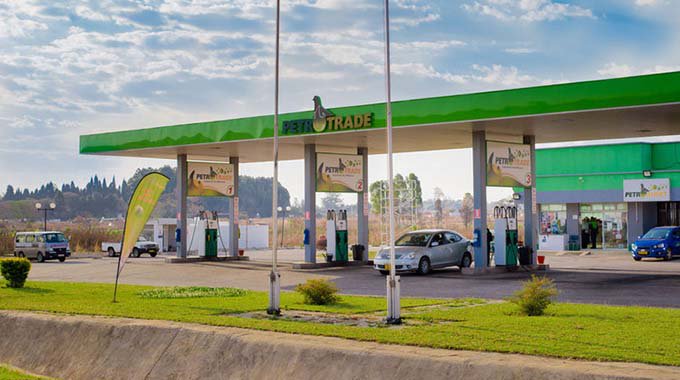FUEL prices have marginally increased in the country - by between 1c and 4c in the last two weeks - despite a recent drop in prices of up to 15 percent on the international market.
Oil prices shot to $66 per barrel on the international market on January 25 prompting local dealers to hike the price. However, prices have since come down by almost 15 percent in the last three to about $61 as at Friday last week but local prices have remained the same. International oil prices are expected to fall further on rising production in the United States.
Players in the fuel sector argued that prices had to be increased slightly, to cater for the rise in the landing price. While fuel prices fluctuate, consumers are concerned that when prices rise on the international market, local retailers swiftly adjust the price upwards but when prices fall, it takes time for reduction to be effected.
The rise in fuel prices comes at a time when Government recently directed players in the petroleum sector to sell fuel at $1,35c and diesel at $1,23c following the reduction in excise duty.
Government reduced the excise duty on petrol from 0,5 cents to 0,385 cents per litre, while that for diesel and paraffin was reduced from 0,4 (cents) to 0,33 (cents) per litre.
Zimbabwe Energy Regulatory Authority (Zera) chief executive officer Engineer Gloria Magombo told The Herald Business last week that petroleum prices are "adjusted weekly" and the prices stated by Government were for the week ending January 28.
"The prices have since moved in tandem with crude oil prices which are currently on an upward trend and in line with the (Statutory Instrument) SI 80 of 2015 as read together with the subsequent amendments.
"As stated by the Minister of Energy and Power Development on January 23, 2018, the reduction of fuel prices then did not mean that prices will remain fixed.
"The Minister said fuel prices will either go up or go down in future in tandem with international oil prices movements as has always been the case," said Eng Magombo.
SI 80 of 2014 says the selling price by a petroleum company on any petroleum product shall not exceed oil company purchase price plus 7 percent of the oil company purchase price.
It adds that the fuel price should also be a minimum of 6c for every litre or a maximum of 7 percent of the oil company's selling price, in the case of the retail oil
However, given the cyclical nature of international fuel prices, they fluctuate from time to time. Apart from SI80 of 2014, petroleum prices are set in terms of SI 20 and 100 of 2015.
Eng Magombo said Zera sets maximum free on board (FOB) prices for the different fuels but due to competition, operators may decide to sell at prices below the cap depending on their trading advantages.
She added that Zera has a team of compliance officers who conduct routine and random price compliance visits to sites across the country.
"Anyone found charging pump prices that are higher than the Zera calculated price caps will be issued with a compliance order to reduce their prices within 30 minutes or risk prosecution and site closure," said Eng Magombo.
- online
 Concern over Masvingo black market
Concern over Masvingo black market  Kenya declares three days of mourning for Mugabe
Kenya declares three days of mourning for Mugabe  UK's Boris Johnson quits over Brexit stretegy
UK's Boris Johnson quits over Brexit stretegy  SecZim licences VFEX
SecZim licences VFEX  Zimbabwe abandons debt relief initiative
Zimbabwe abandons debt relief initiative  European Investment Bank warms up to Zimbabwe
European Investment Bank warms up to Zimbabwe  Young Investment Professional (YIP) Graduate Programme 2019
Young Investment Professional (YIP) Graduate Programme 2019 











 Young Investment Professional (YIP) Graduate Programme 2019
Young Investment Professional (YIP) Graduate Programme 2019
Editor's Pick